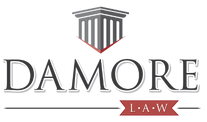 No closing cost mortgages are usually requested by buyers with few money to bring to closing. The phrase is a bit misleading as there is always a cost to lending money. The way those expenses are recouped by a mortgage company may be structured differently. The following is an explanation of MA no closing cost mortgages, what you should know, and how it compares to programs with closing costs.
No closing cost mortgages are usually requested by buyers with few money to bring to closing. The phrase is a bit misleading as there is always a cost to lending money. The way those expenses are recouped by a mortgage company may be structured differently. The following is an explanation of MA no closing cost mortgages, what you should know, and how it compares to programs with closing costs.
What Are No Closing Cost Mortgages
Closing costs exist with all loans because mortgage companies have expenses related to processing mortgages, compensating brokers, etc. In a usual loan, the exact charges are outlined and listed as closing costs. This leads to more money due at closing, which may be a challenge for all home buyers. No closing cost mortgages were developed to minimize this situation.
There are two primary ways that mortgage companies are able to offer no closing cost mortgages. One method is to obtain a larger interest rate, allowing them to recoup the closing costs over time. The other is to roll the closing costs into the amount of the loan.
Pros And Cons
Whether to use no closing cost mortgages must be based on several considerations. If you plan to pay off your mortgage within a few years, then it can be a good option since the higher interest rate would be effective for only a short period of time. This can be true during times where interest rates are high but are expected to lower in the future or if you plan to own a property for only a few years. On the other hand, if you intend to hold a mortgage for the long term, then the expense of an increased interest rate over the years can be significantly higher than simply covering the closing costs now.
It is important to note that no closing costs does NOT mean that money will not be required at closing. Closing costs really only apply to only some items. Other items, such as escrows, are considered pre-paid expenses. They are not put in the closing costs classification and will therefore still be due at closing.
MA No Closing Cost Mortgages
MA no closing cost mortgages may or may not be the best solution for your mortgage needs. To make an educated decision about what financing program works best for you, compare both the interest rate and fees of each loan. Also consider how many years you expect to keep the mortgage and the the long-term cost. Most of this data may be reviewed by requesting a good faith estimate from your lender.

